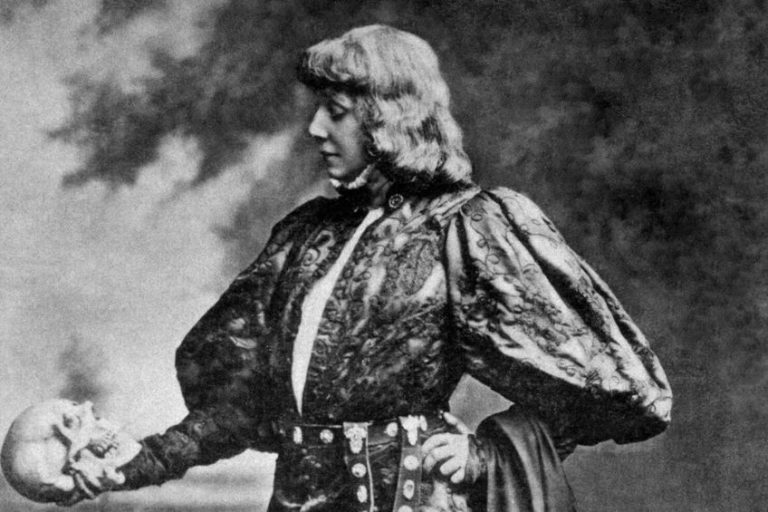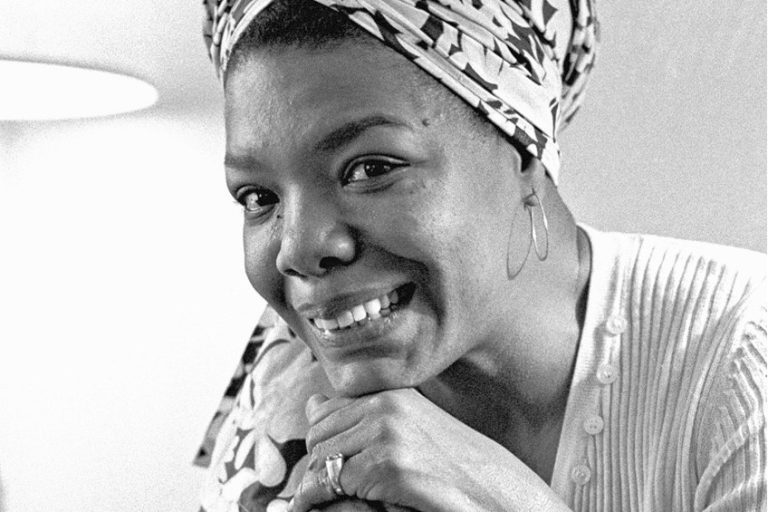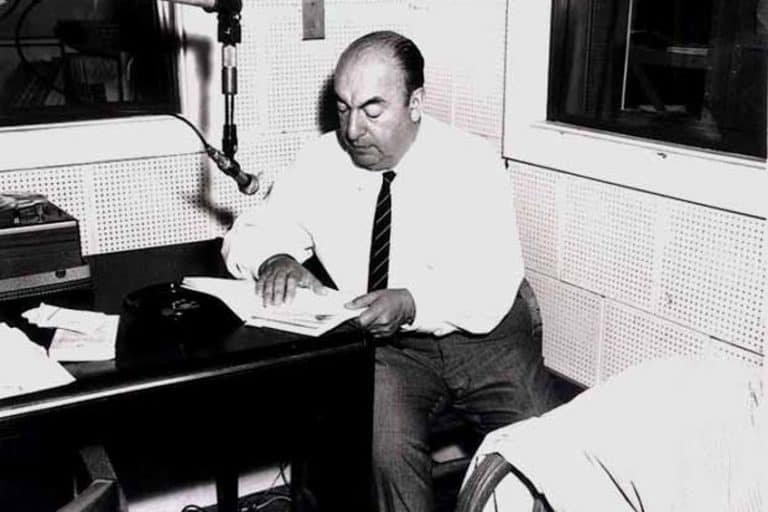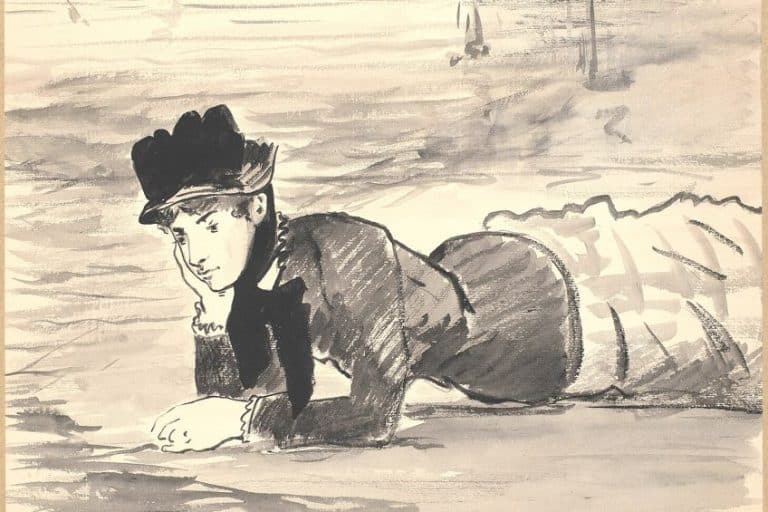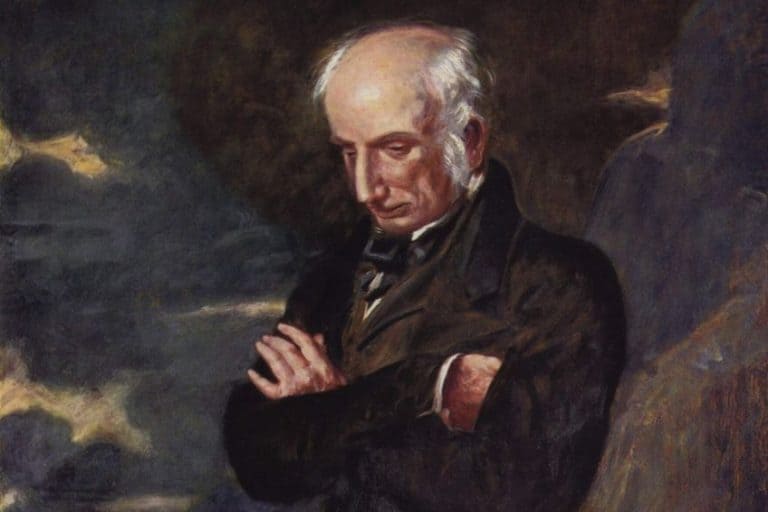Heartbreak Poems – Discover the 10 Best Examples
There are many poems about being heartbroken out in the world, and today, we are going to examine ten of those poems. Each of these poems about heartbreak approaches the topic in a different manner, and this should give a good overview of the way in which poetry can be about love or the loss of it. If this is a topic worth exploring for you, let’s have a look at these poems about heartbreak and see what makes them tick.
Table of Contents
- 1 A Look at Heartbreak Poems
- 1.1 Sonnet 87: Farewell! thou art too dear for my possessing (1609) by William Shakespeare
- 1.2 When We Two Parted (1816) by Lord Byron
- 1.3 Mariana (1830) by Alfred Tennyson
- 1.4 Porphyria’s Lover (1836) by Robert Browning
- 1.5 The Love Song of J. Alfred Prufrock (1915) by T.S. Eliot
- 1.6 Because I Liked You Better (1936) by A. E. Housman
- 1.7 Passion (1943) by Kathleen Raine
- 1.8 [you fit into me] (1971) by Margaret Atwood
- 1.9 Love, I’m Done with You (2011) by Ross Gay
- 1.10 Bleeding Heart (2011) by Carmen Giménez
- 2 Heartbreak Music: Modern Heartbreak Poetry
- 3 Frequently Asked Questions
A Look at Heartbreak Poems
Firstly, it may be pertinent to ask what heartbreak is in the first place. We all approach feelings like this in different ways but, at its most basic, heartbreak is the feeling that comes after love. One cannot feel heartbroken without first having loved. It is the sudden loss of love, from a variety of means, that leads to this feeling. There tends to be an association between love and poetry, as many of the most famous poems, in a pop cultural sense, are often love poems. However, heartbreak poems are also prominent, if not quite as famous as poems.
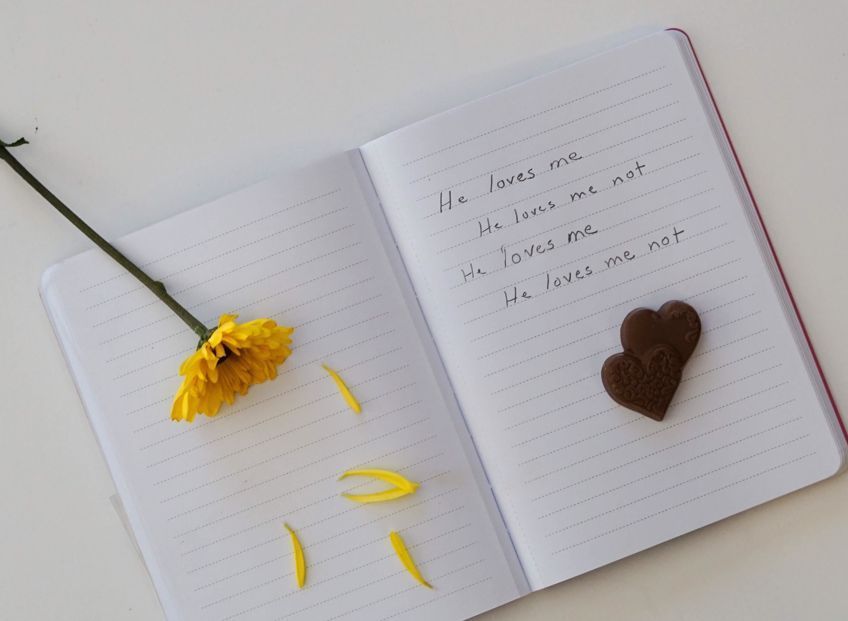
We are going to examine ten different poems about heartbreak today. There will be a combination of long and short poems about heartbreak, and the time period in which these heartbreak poems were written will vary. Heartbreak is an emotion that has been around as long as humans have been around, and so our earliest examples of poems about being heartbroken will be from as early as the 17th century and as late as the 2010s. So, without further ado, let’s have a look at these heartbreak poems.
Sonnet 87: Farewell! thou art too dear for my possessing (1609) by William Shakespeare
| Date Published | 1609 |
| Type of Poem | Shakespearean sonnet |
| Rhyme Scheme | ABAB CDCD EFEF GG |
| Meter | Iambic pentameter |
| Topic | End of a relationship |
Farewell! thou art too dear for my possessing is one of the many poems for which William Shakespeare is known. While this particular poem is not as famous as some of his other poems, such as Shall I compare thee to a summer’s day, it is a superb example of an older form of heartbreak poetry.
This poem is addressed to the figure of the Fair Youth, a recurring character in the work of William Shakespeare’s sonnets.
This poem makes use of all the usual trappings of a Shakespearean sonnet, such as the use of fourteen lines, iambic pentameter, and the standard rhyme scheme of the form. However, the poem’s contents discuss the depression that the speaker feels at the loss of the love from the Fair Youth. This character has, according to the poem, come to his senses and no longer loves the speaker, and the poem reflects that incredible sadness.
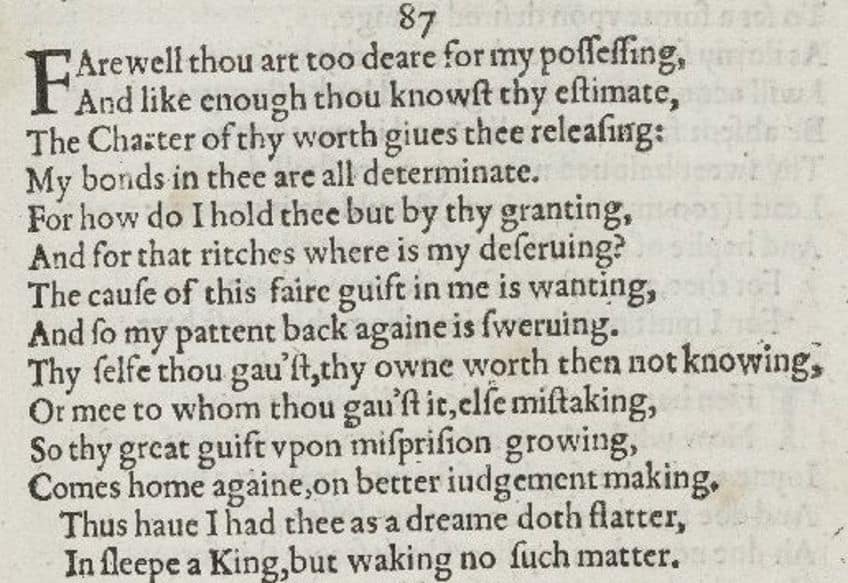
When We Two Parted (1816) by Lord Byron
| Date Published | 1816 |
| Type of Poem | Lyric poem |
| Rhyme Scheme | ABABCDCD |
| Meter | None |
| Topic | Disillusionment |
When We Two Parted is considered to have been related to the affair between Lord Byron and Lady Frances Wedderburn-Webster, although these are theories rather than definitive as he never confirmed such interpretations.
This historical figure was a married aristocrat with whom Lord Byron supposedly had an affair, and the poem is concerned with the ending of this affair and the way in which this lady, purportedly, later had an affair with a prominent British military official.
The poem describes the feelings of intense disillusionment that he felt following the end of this break-up. The rhyming flow of the poem gives way to dark and saddening imagery related to the feelings of coldness and pain that he feels. The poem implies that this kind of pain will reside for years upon years and that this immense duration is what contributes to that feeling of utter disillusionment.

Mariana (1830) by Alfred Tennyson
| Date Published | 1830 |
| Type of Poem | Lyrical narrative poem |
| Rhyme Scheme | ABABCDDCEFEF |
| Meter | None |
| Topic | Lamentation |
Mariana is one of the many poems by Alfred Lord Tennyson that was concerned with ideas surrounding isolation. The poem itself, like many of the poems written by this poet, takes the form of a dramatic monologue in which the speaker is able to express the feelings that he feels about this young woman for whom he laments.
This woman, named Mariana, has been abandoned by her lover, and as a result, the speaker focuses on the way she feels.
She struggles to reconnect in any meaningful way with society at large because of the incredible turmoil that Mariana feels inside herself. The focus on emotion resulting from having one’s love abandon someone has made this one of the most notable heartbreak poems.

Porphyria’s Lover (1836) by Robert Browning
| Date Published | 1836 |
| Type of Poem | Dramatic monologue |
| Rhyme Scheme | None |
| Meter | None |
| Topic | Jealousy |
Porphyria’s Lover is a particularly dark tale that takes a different angle from the usual poems about heartbreak. Instead of being concerned entirely with sadness and unhappiness, it instead focuses on the kind of terrible action that can come from passionate love and jealousy. The poem is not like most heartbreak poems in any sense, and it could be argued that it does not easily conform to this variety of poetry at all.
The poem is concerned with a speaker who has no real love in life, and the appearance of this woman adds that to his life.
The feelings of passion and adoration abound, and this leads the speaker to kill her as a way of preserving that so that it can never be taken from him. He even contemplates that he has not been punished by god for what he has done. In a sense, this poem can be seen as one that is about preemptively striking back against heartbreak before it can take hold by engaging in a violent and misguided “solution” that makes the poem an uncomfortable and dark story.

The Love Song of J. Alfred Prufrock (1915) by T.S. Eliot
| Date Published | 1915 |
| Type of Poem | Dramatic monologue |
| Rhyme Scheme | None |
| Meter | None |
| Topic | Anxieties and regrets |
The Love Song of J. Alfred Prufrock is generally seen as one of the most important poems in the Modernist tradition. However, it is also not solely a poem about heartbreak and is instead focused on a number of different feelings of the character after whom the poem is named.
The poem is experimental and variable over the course of its duration.
The structure of the poem takes the form of a dramatic monologue in which the depressive central character discusses many of the thoughts and feelings that he possesses. These are often seen as regretful and anxious, and one of the feelings that he focuses on is his feeling of romantic hesitation. This is not one of the more traditional heartbreak poems, but its focus on the feelings that can come with a failed romance certainly translates to an understandable mentality.
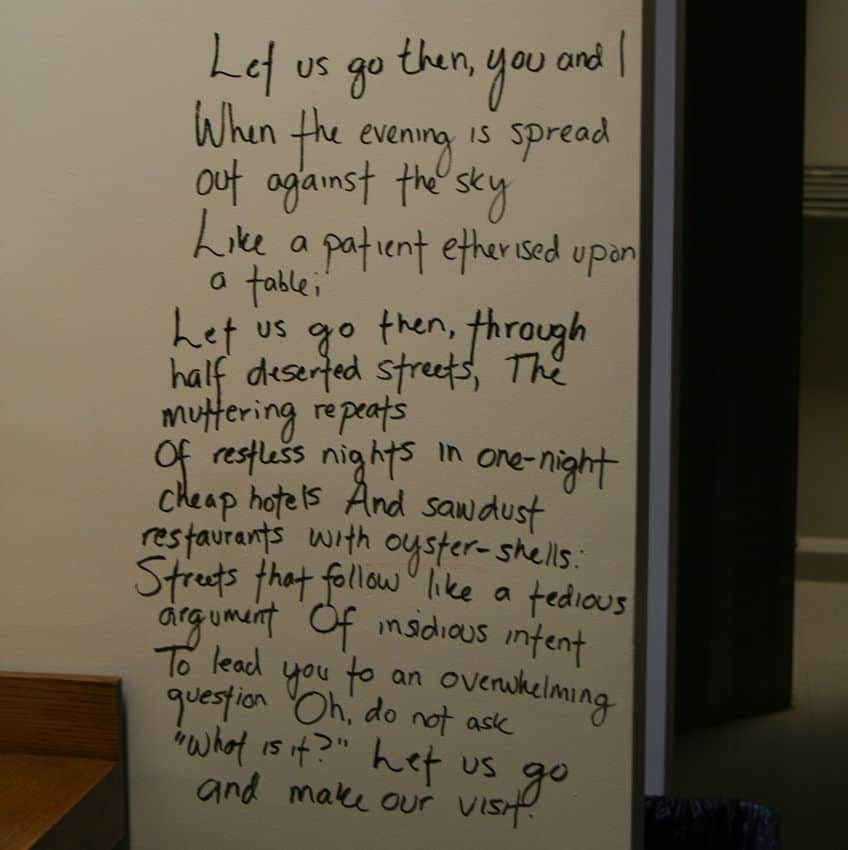
Because I Liked You Better (1936) by A. E. Housman
| Date Published | 1936 |
| Type of Poem | Lyric poem |
| Rhyme Scheme | ABCB |
| Meter | Iambic trimeter |
| Topic | Unrequited love |
Because I Liked You Better is a poem that concerns itself with the feelings that the speaker felt for a woman. The poem’s view is on unrequited love and the heartbreak that can arise as a result of it. This woman he loves is someone who does not love him back, and she is actually angered by his apparent adoration for him.
For this reason, he promises to stay away from her the only way that he feels he can actually do so, and that is by dying.
The extremely upsetting tone and reasoning behind this decision make this one of the darkest poems about being heartbroken on this list. This fixation on the woman he supposedly loves brings him to forever take himself out of the world rather than deal with the feeling of being rejected by someone making this a particularly unhappy example of a heartbreak poem.

Passion (1943) by Kathleen Raine
| Date Published | 1943 |
| Type of Poem | Free verse |
| Rhyme Scheme | Variable |
| Meter | None |
| Topic | Healing from heartbreak |
Passion is one of the examples of short poems about heartbreak as it is not a particularly lengthy poem in any sense of the word. The poem is concerned with a speaker who considers and thinks about love and the resulting heartbreak that follows on from it.
The poem is focused on healing from this kind of feeling rather than dwelling on it in the way that many heartbreak poems fixate on the negative.
The poem looks at the way in which one can feel lifeless and terrible after the end of some kind of a love, and that the only way to make it through such heartbreak is to instead focus on yourself. It encourages us to rebuild ourselves and find a way to proceed in our lives without the hurt that comes at the end of love.
[you fit into me] (1971) by Margaret Atwood
| Date Published | 1971 |
| Type of Poem | Quatrain poem |
| Rhyme Scheme | None |
| Meter | None |
| Topic | Relationships |
[you fit into me] is a poem by the notable Canadian writer, Margaret Atwood. This particular poem is found within a collection that is focused on feminist themes, as much of her work is, such as her most famous text, A Handmaid’s Tale.
This relatively short poem about heartbreak is focused on the darker feelings that can be found underneath love.
The suggestion of the poem is that passion and pain are connected to one another, and that love is a complicated and difficult thing that can be filled with heartbreak and pain. It is not as simple as many love poems would like to present it, but this contrast between the positives and negatives of love presents a more nuanced and naturalistic understanding of love and heartbreak as connected to one another.
Love, I’m Done with You (2011) by Ross Gay
| Date Published | 2011 |
| Type of Poem | Free verse |
| Rhyme Scheme | None |
| Meter | None |
| Topic | Breakup |
Love, I’m Done with You is one of the newest poems in this list, and it is a free verse poem that is a little different in its general presentation of love. Love and heartbreak often go together, and heartbreak usually arises from some kind of love, such as the ending of love. However, this poem instead focuses on love itself.
Not a person, but the nebulous concept that may be felt before one feels heartbreak.
The poem is about a kind of break-up from love. The poem arose from a breakup, but instead of fixating on the kind of anger or mourning that can arise from the end of love, there is instead a more hopeful sense of self-realization about love. The poem can be seen as a means of presenting an epiphany about love to the reader.
Bleeding Heart (2011) by Carmen Giménez
| Date Published | 2011 |
| Type of Poem | Free verse |
| Rhyme Scheme | None |
| Meter | None |
| Topic | Emotional reaction |
Bleeding Heart is one of the newest poems on this list, to give a good overview of heartbreak poems from ancient times to the present, and this poem does not take the usual approach to heartbreak as it is associated with lovers.
The poem is instead concerned with a myriad of different, terrible things that occur and the utter heartbreak that is felt as a result of them.
This poem focuses on a number of different issues in our world, such as war, and uses the metaphor of a bleeding heart to convey the emotional response that she feels in response to these kinds of events. The term “bleeding heart” has often been used in a pejorative sense to describe those who supposedly feel too much, but this poem defends that view and uses it to encourage a sentimental fixation on the things that may cause one heartbreak because of society.
Heartbreak Music: Modern Heartbreak Poetry
There has long been an association between love and poetry, but there has also long been an association with a lot of pop music and heartbreak in the contemporary. Some of the most famous examples of modern pop music are about heartbreak.
In addition, some of the most famous musicians and bands, like Taylor Swift, Beyoncé, and Fleetwood Mac have produced songs about heartbreak.
It has become something of a stereotype that popular music is about a breakup and the subsequent heartbreak that follows from that. This may be because the concept of dating is significantly different than it was a century ago. People used to simply get married. Today, we often go through one partner after another, and the ending of those relationships is not always mutual. Someone has to face heartbreak because of that relationship coming to an end.

One could even argue that as poetry has become less prominent than it used to be, it has been somewhat replaced by lyric-based music. Many songs with lyrics make use of poetic form, such as meter and rhyme, and these elements are found in heartbreak songs and heartbreak poems. So, perhaps many of the modern versions of heartbreak poems can actually be found in the music that manages to make it onto the Billboard Top 100.
With this final look at the influence of heartbreak poems on music, we have concluded our examination of poems about being heartbroken. Over the course of this article, we have examined long and short poems about heartbreak, and the way that heartbreak can be viewed and discussed in a variety of different ways. Hopefully, this has given a good overview of some of the heartbreak poems that are out there. If you need one, there will always be many to find.
Frequently Asked Questions
What Is a Heartbreak Poem?
A heartbreak poem is, essentially, any poem that is about heartbreak in any sense. There are many different ways in which heartbreak can be felt, and the way that one person experiences heartbreak can differ from how others perceive heartbreak. This type of poem is not a formalized type of poetry, like a sonnet, as it can be found in any number of types of poetry. It is also not as famous a type of poetry as something like a love poem, but poems of this nature can be appealing to those who have experienced heartbreak.
What Are the Common Characteristics of Heartbreak Poetry?
As heartbreak poems can be in any type of poetry, such as in sonnets or sestinas, there are no definitive characteristics of heartbreak poetry. This subject matter is often associated with explorations of feelings like grief and loss, but there are no formal characteristics that are commonly used in heartbreak poems. The only real thing that unifies heartbreak poetry is that these poems are all about the theme of heartbreak.
Is Heartbreak a Common Theme in Poetry?
Heartbreak is quite a common theme in poetry. There have been many poems throughout literary history that have made use of heartbreak as a subject. Feelings like heartbreak, love, and sorrow are often seen as universal human feelings, and for this reason, every culture can generally associate with them and understand them. This is why a theme like heartbreak is so common in poetry.
Which Poets Are Best Known for Heartbreak Poetry?
Many poets have become well-known for writing heartbreak poems, such as W.B. Yeats, Edna St. Vincent Millay, Thomas Wyatt, William Shakespeare, and many more. Many famous poets over the years have made use of this theme in their poetry, and so even poets who are not necessarily known for writing poems about heartbreak may have written their own long or short poems about heartbreak.
What Are the Most Famous Heartbreak Poems?
There are many famous poems about heartbreak, and some of the most famous include Farewell! thou art too dear for my possessing (1609) by William Shakespeare, The Love Song of J. Alfred Prufrock (1915) by T.S. Eliot, and Passion (1943) by Kathleen Raine. However, there are many other poems that have used the theme of heartbreak, as it is quite a common theme.
Justin van Huyssteen is a freelance writer, novelist, and academic originally from Cape Town, South Africa. At present, he has a bachelor’s degree in English and literary theory and an honor’s degree in literary theory. He is currently working towards his master’s degree in literary theory with a focus on animal studies, critical theory, and semiotics within literature. As a novelist and freelancer, he often writes under the pen name L.C. Lupus.
Justin’s preferred literary movements include modern and postmodern literature with literary fiction and genre fiction like sci-fi, post-apocalyptic, and horror being of particular interest. His academia extends to his interest in prose and narratology. He enjoys analyzing a variety of mediums through a literary lens, such as graphic novels, film, and video games.
Justin is working for artincontext.org as an author and content writer since 2022. He is responsible for all blog posts about architecture, literature and poetry.
Learn more about Justin van Huyssteen and the Art in Context Team.
Cite this Article
Justin, van Huyssteen, “Heartbreak Poems – Discover the 10 Best Examples.” Art in Context. September 26, 2023. URL: https://artincontext.org/heartbreak-poems/
van Huyssteen, J. (2023, 26 September). Heartbreak Poems – Discover the 10 Best Examples. Art in Context. https://artincontext.org/heartbreak-poems/
van Huyssteen, Justin. “Heartbreak Poems – Discover the 10 Best Examples.” Art in Context, September 26, 2023. https://artincontext.org/heartbreak-poems/.




